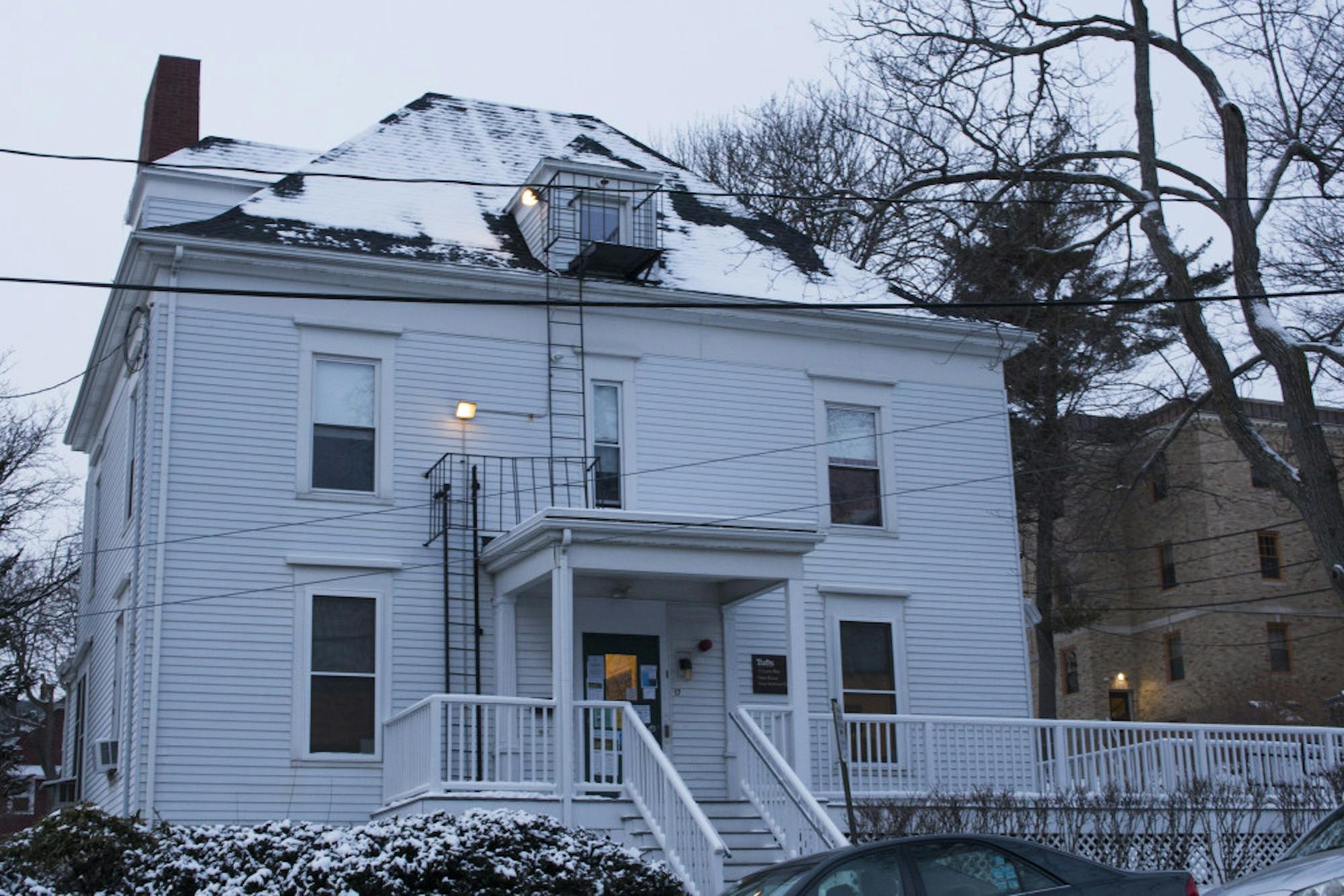The Asian American House and the Asian American Center will be separated next year, allowing for the Start House to be designated entirely for the Asian American Center, following a Tufts Community Union (TCU) Senate resolution calling for Asian American identity-based housing to be separate from the center. As a result of the resolution, which passed Nov. 19, the Office of Residential Life and Learning (ResLife) has assigned the 110s suite in Hillside Apartments to students who desire such housing.
According to Asian American Center student leaders and Tufts faculty, both students and administrators have been in favor of changing the center from residential to a nonresidential community space.
Ana Sofia Amieva-Wang, Jacqueline Chen, Shannon Lee and Charlie Zhen wrote the resolution explaining the inaccessibility of the center. One of the primary concerns they identified was that the center's doors were locked to non-residents.
“Student leaders in the community were pretty united on the fact that something about the center needed to change to make it more accessible to students,” Chen, a junior and the TCU Historian, said. “It doesn’t really feel like a welcoming space.”
Amieva-Wang, a junior and the center’s fall 2017 intern, noted that the space had immense potential, but its locked doors made building Asian American community difficult.
“The inaccessibility of the center has really fragmented any sense of Asian American community on campus,” Amieva-Wang explained. “Because the center is seen as unwelcoming or maybe exclusive, it was hard to get students engaged in really being part of this process.”
Lee, a sophomore, shared Amieva-Wang's sentiment, saying that the center had failed to meet students' needs.
“The center has ... a long way to go, but simply unlocking the door is a fundamental step to making an accessible center,” Lee, the TCU diversity and community affairs officer and Ethnicity and Community Affairs Committee chair, added.
In the future, students and administrators hope to create diverse programming and classroom spaces in the center in addition to providing students with resources and opportunities, according to Lee.
Chen expressed her excitement for the creation of classroom spaces, group meeting areas and larger community-building events. Zhen, the Asian American Community Senator, stated that his goal for the center is for it to become a place to hang out or study, as well as a meeting place for clubs or discussion groups.
The change to the center began with apetition that gained large support from the Tufts community. Student leaders then partnered with the administration to pass the Senate resolution and put the housing change in action.
Matt Austin, associate director of housing operations, spoke about ResLife’s support for student requests.
“We’ve really tried to reach out to our small group houses and see how we can better serve them in residential life [by] getting a better idea of the problems in their house and how we can address them,” Austin said. “We want to do our best to listen to our student voices and find a reasonable solution to what they’re asking for.”
ResLife made the decision to move Asian American identity-based housing to the 110s suite in Hillside Apartments as a temporary solution to the problems with the center, according to Chris Rossi, associate dean of student affairs. Referencing Rainbow House's recent move from a suite to a stand-alone house on Sawyer Avenue, he said the long-term goal is to move Asian American identity-based housing out of Hillside Apartments as well.
Chen, Lee and Amieva-Wang all expressed that their priority was opening the center to the community as quickly as possible, stressing expediency over a permanent housing solution.
“A priority was getting the center opened. That meant, obviously, that we had to make compromises. We knew that, and that’s why we were very enthusiastic with the move to the Hillside suite,” Lee explained. “One day it will be relocated to a wood-frame house.”
Both students and staff involved with the Asian American Center view this as a positive change for the Asian American community at Tufts. Linell Yugawa, director of the Asian American Center, elaborated on the collaborative process between the students and administration in changing the center.
“Everyone has been extremely supportive to make as smooth a transition as possible,” Yugawa told the Daily in an email. “I fully support all that the student leaders have done for the Center and commend them for their advocacy and leadership for the community. I thank them and the Deans for making this happen.”
Sarah D’Annolfo, associate director of residential education, stressed Tufts’s dedication to representing its students. She noted that ResLife hopes to better facilitate building and supporting small-group housing communities.
“[We aim to] support opportunities for collaboration [by putting] student voices at the center of all of that effort and help facilitate great ideas as they unfold,” D’Annolfo said.
Students and administration envision the future of the center as an accessible, welcoming space for community-building. Zhen, a junior, expressed the significance of this change and his excitement for the future center.
“We recognize that the Center is far from perfect, but this is a major step in increasing its accessibility and allowing more students to access a place that will help them form communities and call Tufts home,” Zhen wrote via email. “This change would not have gone through if it weren't for all of the times students spoke up, expressed dissatisfaction with the co-location of the Center and the residence and sought to improve Tufts for underrepresented students. I encourage everyone to continue thinking about spaces on campus and how we can improve them.”
Asian American Center to become nonresidential, community-focused space

The Asian American Center (Start House) is pictured.





